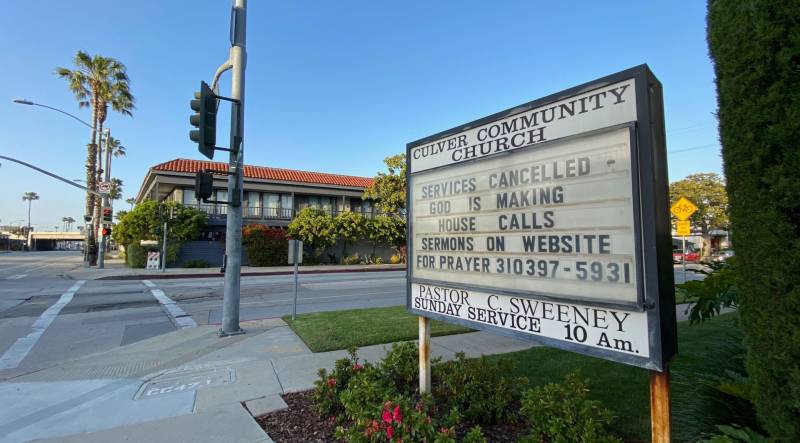Places of worship in California can reopen for services, but only after they make major modifications based on a set of guidelines released Monday by state health officials.
The guidelines, issued by the California Department of Public Health, leave it to the discretion of individual counties to decide whether religious gatherings in their jurisdictions can resume. If local officials give the go-ahead, places of worship must limit attendance to 25% capacity or a maximum of 100 attendees — whichever is lower — for at least the first 21 days after reopening.
Most houses of worship have been limited to online and remote services since March, when Gov. Gavin Newsom issued a stay-at-home order to slow the spread of the coronavirus.
“Together, our actions have helped bend the curve and reduce infections in our state,” said Dr. Sonia Angell, state health officer and California Department of Public Health director, in a statement. “As sectors continue to open with changes that aim to lower risk, remember that COVID-19 is still present in our communities.”
Churches, synagogues, mosques and other houses of worship are also required to create COVID-19 prevention plans and establish protocols for screening workers and volunteers. The guidelines detail how to clean and disinfect high-traffic areas such as pews and lobbies, and items such as microphones and stands. Religious leaders and volunteers are urged to wear gloves and to continue enforcing social distancing by reconfiguring seating and avoiding large gatherings such as concerts and celebrations.

